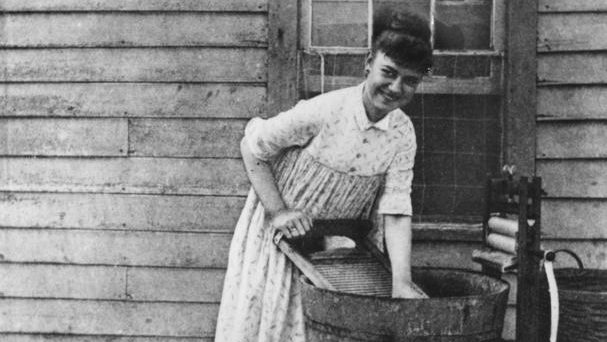Much of history has depicted women as being responsible for the 3 C’s: Childbearing, Cooking, and Cleaning. Edward Shorter in Women's Work: What Difference does Capitalism Make?, states that history has depicted women in the shadow of men, consumed with the work of maintaining a family household.
The end of this old system of labor began to become apparent in the 1920 - 1950’s. Before the mid-20th century, running a household consumed women’s lives entirely, specifically on the 3 C’s.
Take laundry, for example. In "Capitalism Will Abolish Laundry Day,” Sarah Skwire writes:
“In the 1920s, the average housewife spent about 11.5 hours per week on laundry and ironing. By 1965, that had dropped to just under 7 hours. In 2014, that average housewife (and her spouse) spent about 20 minutes a day on the task, or just over 1.5 hours per week.”
The tool which allowed women to liberate hours of the week was the modern washing machine, an innovation that can be linked to capitalism.
The invention of modern household appliances allowed for homemakers to cut the time spent on daily tasks exponentially, giving women something that most women had ever experienced - free time.
This free time led to women pursuing things previously unavailable to them, such as education and the same careers to men.
Though women have naturally evolved to be weaker than men by nature due to testosterone, the invention of industrial machinery quickly closed this labor gap. These tools allowed for women to work in factories side-by-side with men, or even in their place during the Second World War.
Since then, new technologies have given birth to new industries such as computer engineering. The careers that fit these new industries care very little for an individual's physical capacity, but only for that individual's intelligence.
Capitalism is the only system that encourages entrepreneurship, innovation, and self-reliance. These are the characteristics that brought about new technologies which gave women the free-time they needed to not only liberate themselves from their households but to start their careers.
Related:
• Capitalism & Women: How Government Intervention Hurts Women
• Capitalism & Women: Carving the Path to Women’s Liberation
• Capitalism & Women: The Truth About The Wage Gap











